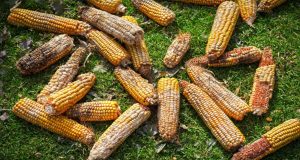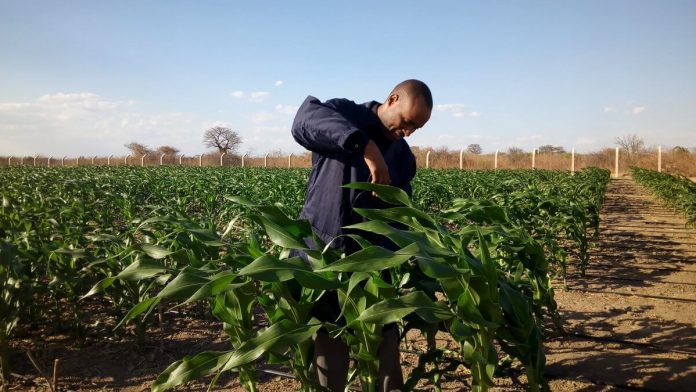Agriculture is either the biggest employer or the biggest contributor to GDP in Africa, in some countries, taking a lead in both. Juma is a small scale farmer in Kenya, Tanzania, Nigeria and Zimbabwe. His speciality is maize. Last year he harvested fifty bags each weighing 90 kilograms of maize. Sadly, his financial situation continues to deteriorate. Post-harvest crisis hits and Juma ends up selling his produce at a throwaway price. How? Once he harvests, human scarecrows otherwise known as middlemen with a ‘better access’ to the market buy the produce from the gullible farmers. They buy at low prices which is frustrating, to later sell at high market prices. Juma and other farmers have developed defensive mechanisms, they have decided to store their produce and sell when there are better prices. But for how long will this charade last?

There is good news, a ray of hope or what we like to call light at the end of the tunnel. E-commerce has dawned in the agricultural sector. Inspired by his parents who were farmers, John Kinyua-a Kenyan youth has developed Mkulima Bora app that allows farmers to reach out directly to consumers thereby eliminating brokers who have been a persistent headache to the farmers in Africa.
The app has an approximated 2,000 farmers currently registered with at least 200 users on a daily basis. The numbers on social media are appealing as they have 13,000 users and clients. The number of maize farmers accessing and actively using the app is estimated at 1200. The app is unique in that they have made Artificial Intelligence (AI) the backbone of the platform. This studies consumer behaviour and interests in order to provide farmers with quality markets.
The AI identifies the demand for products in specific locations. It does an analysis and channels of product requests and orders according to the level of demand in a certain area. Moreover, the app is linked to social media platforms such as Facebook and Twitter to increase the target markets for farmers. When a farmer posts his products through the SMS service, the product sees its way to social media hence acting as a connection between the global market and the farmer. In 2016 and 2017, Mkulima bora app experienced a major breakthrough serving approximately 15,000 farmers in Malawi.

In addition to the marketing platform, Mkulima bora app has a digital library equipped with over 200 professional E-books, where farmers can source knowledge on crop production-best ecological zones for specific crops, and cultivation strategies. This is well reinforced with resourceful Agricultural officers, for a one on one experience. Information on climatic analytics comes in handy during the planting season.
Given the high rate of smartphone penetration in a majority of African countries, the e-commerce sector in agriculture should be tapped into. According to the United Nations Conference on Trade and Development (UNCTD), the increase in online shopping in Kenya hit 2.61 million in 2017 as opposed to 1.2 million in 2014.
Mkulima bora, as well as other apps such as Zalisha, will offer a solution to the middle-men menace in the agricultural sector. This is good news for Juma who can now curb the post-harvest losses that arise from inadequate markets.
Related article: https://www.standardmedia.co.ke/topic/mkulima-bora-app



